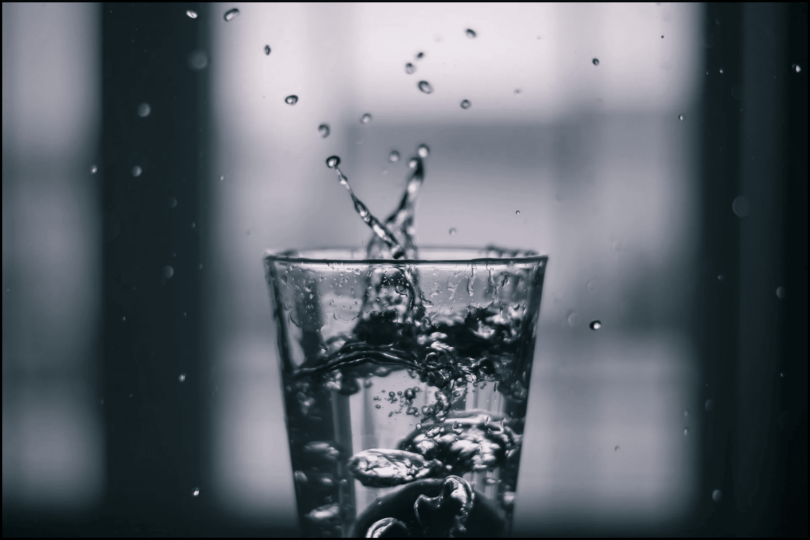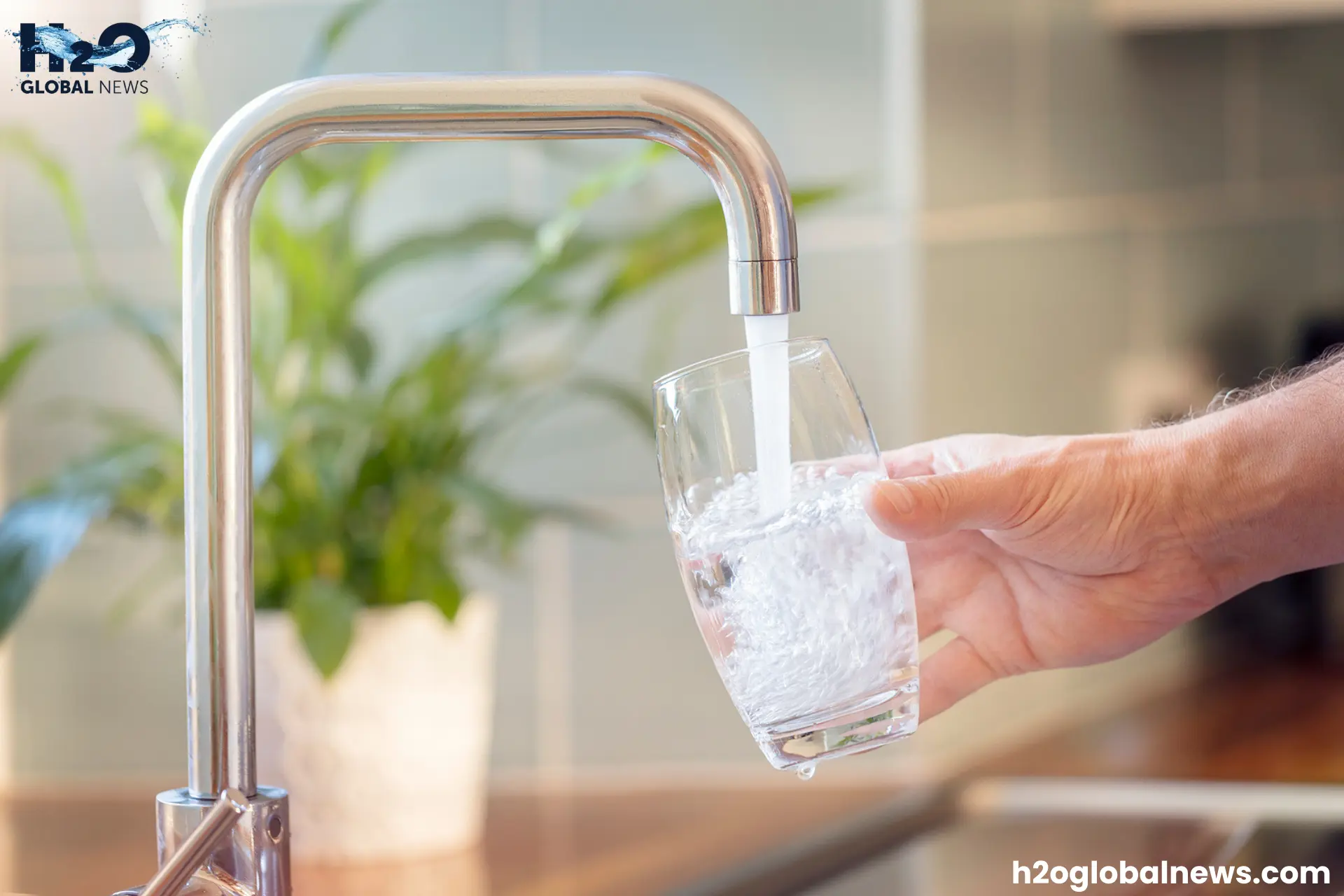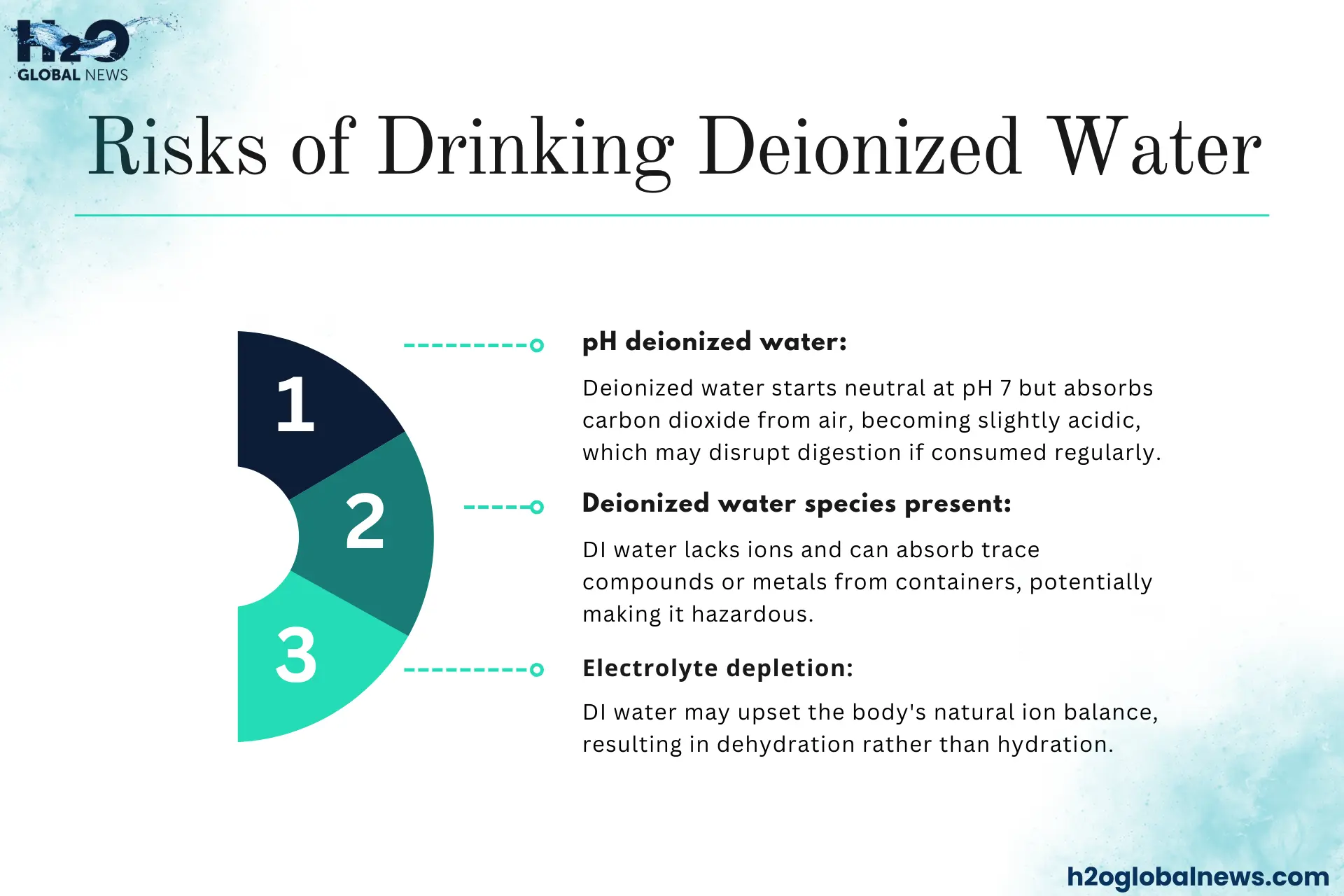Do you drink a super clean water that has almost no minerals and salts in it? You shouldn’t! This type of water is called deionized water and is used for specific areas like labs and factories.
But most of people think that they should drink this DI water because it is very clean. But is it okay not to intake minerals and salts into your body? So, in this article, we’ll discuss about what deionized water is, why it is used in certain areas, and whether it is a good idea to have it in your daily life. I think you might be surprised by the answer!
What is DI Water?
Deionized water is a type of water that has been purified using ion exchange resins to remove positive and negative ions. The method eliminates contaminants such as sodium, chloride, and other dissolved salts, leaving practically pure H₂O.
Deionized water contains atoms that differ from natural water because the ions and minerals have been removed. This renders DI water chemically unstable, as DI water absorbs ions from its surroundings to regain balance.
Is Deionized Water Safe to Drink?
Technically, yes, but it is not recommended for regular consumption. Here’s why:
1- Lack of Essential Minerals
Minerals like calcium, magnesium, and potassium are vital for health in natural water. Since deionized water species present do not include these, drinking DI water deprives the body of necessary nutrients.
2- Potential Health Risks
- Corrosive Nature: DI water is a chemically aggressive substance that can drain minerals from your body, including your teeth and bones.
- Electrolyte Imbalance: A lack of electrolytes can upset the body’s natural balance, potentially causing health problems.
3- Not Designed for Drinking
De-ionized water is primarily used in applications like cleaning, pharmaceutical manufacturing, and cooling systems where the absence of ions is crucial. It is not intended for human consumption.
Risks of Drinking Deionized Water
1- pH deionized water
When pure, deionized water has a pH of roughly 7 (neutral), but exposure to air can drop its pH by absorbing carbon dioxide, making it somewhat acidic. When ingested regularly, this acidity might upset your digestive tract.
2- Deionized water species present
Because DI water lacks the ions found in ordinary water, its composition can change when in contact with containers, absorbing trace compounds or metals that may be dangerous.
3- Electrolyte depletion
DI water may upset the body’s natural ion balance, resulting in dehydration rather than hydration.
Deionized Water vs. Distilled Water
Distilled Water: Created through boiling and condensation removes impurities, including most minerals and microorganisms.
Deionized Water: Removes ions using resins but does not necessarily eliminate organic impurities or microorganisms.
Both are purified; distilled water is generally safer for drinking, while deionized water is better suited for industrial use. Understanding the main threats to drinking water quality can help you make informed choices about water consumption.
Applications of Deionized Water
Although it is not ideal for drinking, deionized water has numerous uses:
- Industrial Cleaning: Ideal for cleaning sensitive equipment like electronics, where ions can cause damage. Deionized water plays a significant role in various industrial processes, ensuring the quality and safety of operations.
- Laboratory Use: Ensures accurate chemical reactions by eliminating interfering ions.
- Automotive and Cooling Systems: Prevents mineral buildup and corrosion.
Conclusion
While deionized water is helpful in industrial and laboratory settings, it is not advised for daily drinking due to its lack of vital minerals and associated health hazards. Distilled water is a safer option if you want to drink clean water.
Always choose water that promotes hydration and wellness over chemically pure but potentially dangerous alternatives such as DI water.
For those seeking pure drinking water at home, it’s essential to understand the various purification methods available.
FAQs
1- Why Is Deionized Water Used in Industries Instead of Regular Water?
DI water is free from ions that can interfere with industrial processes, such as electronics manufacturing or pharmaceutical applications.
2- Is Deionized Water Safe to Drink Occasionally?
Occasional consumption may not harm healthy individuals, but it lacks essential nutrients and may disrupt mineral balance over time.
3- Deionized vs Distilled: Which Is Better for Drinking?
Distilled water is safer and more suitable for drinking because it is free from microorganisms and impurities, while deionized water is not designed for human consumption.









